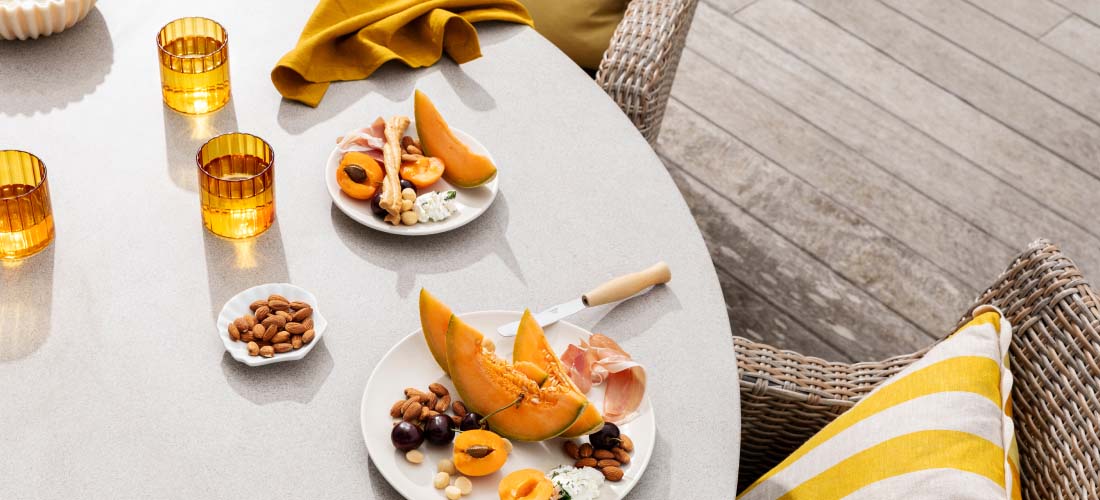
The secret to forming positive habits
You reach for your phone as soon as you wake up in the morning.
You can’t get by without your morning latte.
You bite your nails when you’re anxious and treat yourself to a new outfit after a stressful day. Sound familiar?
We’re all creatures of habit – some of them beneficial, others not so much. But the beauty of habits is that we have the power to form new ones and use them to achieve our goals.
Dr Gina Cleo is one of Australia’s leading habit experts, who works with people to boost their health and wellbeing in a sustainable way.
‘We’ve been told that success requires big changes (the “go-hard-or-go-home” mentality), but it's actually the simple actions, repeated over time, that will determine the life you lead,’ she explains. ‘Habits are the invisible blueprint of our life, and we have the power to change them.’
Habit changes can be applied to many areas of our lives, whether it’s healthy eating, exercise, wellbeing, relationships, or budgeting. ‘Through habit change, not only can you achieve your goals, but you can also maintain those goals long term,’ Dr Cleo adds.
Before you start building new habits, let’s delve into the science behind them and how they can be used to create positive change.
What is a habit?
A habit is a particular act or behaviour we tend to do regularly. Habits can be beneficial or detrimental to our health and wellbeing, and are usually associated with some sort of reward. For example:
- Putting your seatbelt on when you get in the car keeps you safe (and stops you from getting a ticket).
- Sticking to a regular training routine helps you get fitter and stronger.
- Tracking your spending helps you identify ways to save.
The same applies for what we might consider ‘bad’ habits, Dr Cleo points out. ‘Eating a slice of cake every night isn’t going to help you achieve your health goals, but it does offer you the reward of satisfying your sweet tooth. And hitting snooze on your gym alarm isn’t going to help you be more active, but it does allow you to sleep in a little bit longer.’
Habits, behaviours, and routines
The difference between habits, behaviours, and routines is subtle, but significant. As Dr Cleo explains: ‘A behaviour might be deciding what to make for dinner or which way to drive to work, while habits are things like brushing your teeth in the morning or scrolling through your phone while you watch TV.
Furthermore, a routine is a thought or behaviour you do regularly, but it’s not necessarily subconscious or automatic. For example, your routine could be going to the gym three days a week.’
‘We tend to fall back on unhelpful habits when we’re tired, stressed or fatigued, because they’re often convenient and self-indulgent.’ - Dr Gina Cleo.
How are habits formed?
Most worthwhile habits take time, discipline and a lot of repetition to build. Take handwashing, for example. As children, we’re constantly reminded to wash our hands after certain activities. At first, it takes effort and concentration – turning on the tap, lathering up with soap and rinsing it off. But with enough repetition, it becomes automatic; it becomes a habit.
Other habits – especially undesirable ones like smoking, alcohol dependence or staying up late – form quite easily. ‘We tend to fall back on unhelpful habits when we’re tired, stressed or fatigued, because they’re often convenient and self-indulgent,’ explains Dr Cleo.
Whether you’re looking to adopt a new healthy habit or replace one you’d like to shake, try putting a realistic time frame on it. A study by University College London found that on average, it takes around 66 days for a behaviour change to become a habit.
But don’t let that time frame deter you; rather than focusing on a faraway end goal, Dr Cleo recommends breaking it down into smaller, realistic chunks, known as atomic habits or micro habits.
‘A micro habit is a bite-sized version of your desired habit – an action that doesn’t require too much effort,’ she says. ‘For example, if your goal is to move your body more, it’s much easier to take a 15-minute walk every day rather than signing up to run a marathon. Small changes add up to big achievements when done consistently.’
How can we utilise habits to achieve our goals?
If there’s a specific goal you’re working towards – say, saving for an overseas holiday, cutting down your alcohol intake, or getting fit – building habits to support that goal can make you more likely to succeed.
Habits can help you work towards a goal because their benefits compound over time. If boosting your savings is your goal, your habits could include meal planning for the week to avoid resorting to takeaway; going for a walk at lunch rather than heading to the shops; or making your coffee at home instead of buying it from a cafe.
7 steps to build new habits
Ready to incorporate some positive habits into your life? Try these tricks.
1. Choose a time and place that suits you
Sustainable habits need to work in with your lifestyle, so try mapping out your day and plotting your new habits when and where they’ll most likely be achieved. If you’re trying to be more active, find a gym that is within walking distance, or a short drive from your house so it’s not too much of a detour to get there.
2. Make it easy
Want to drink more water? Keep a glass by your bed or on your desk. Trying to eat more vegies? Buy them pre-cut or frozen from the supermarket so they can easily be incorporated into your meals. Keen to exercise more? Find an activity that’s fun and you enjoy doing!
3. Eliminate triggers
If your goal is to curb your spending, a trigger might be all the sales emails that pop up in your inbox. Hit unsubscribe to eliminate this trigger. If you tend to reach for the chocolate after a bad day at work, avoid that aisle in the supermarket, or do your shopping online to avoid it altogether.
4. Create a supportive environment
It’s human nature to be influenced by those around us, so find like-minded friends to help support your desired habits. Take a friend with you to that new Pilates class you want to try or tell your partner what you want to achieve so they can be supportive in your actions. Sharing your goals with friends and family can also help keep you accountable.
5. Use habit anchors
Habit anchors are the core actions you do every day, which you can build upon to create new habits. For example, drinking a glass of water in the morning when you wake up, laying out your exercise clothes the night before a workout, or doing some yoga stretches while you’re watching TV in the evenings.
6. Swap out bad habits with good habits
If you’re looking to cut back on your sugar intake, make a cup of herbal tea when you’re craving chocolate after dinner. If you find yourself staring at your phone screen of an evening, swap it out with a book before bed. If you’re trying to cut back on smoking, practise breathing exercises next time you want to light a cigarette.
7. Lean on technology
When you’re in the beginning stages of a new habit, it can be tricky to remember to do it each day. So, use technology to help you. Set some reminders on your phone, invest in a fitness tracker or download an app to record your progress. If your new habits involve using your phone less, you can still use your phone for that too! You can use your phone settings to create focus periods where certain apps are limited.
Form positive financial habits with a myBOQ account
If you have a myBOQ account, you can start building healthy financial habits with the myBOQ app. It’s packed with intuitive features to help you stay on top of your spending, stick to a budget and boost your savings. Download it today and start kicking those financial goals.


